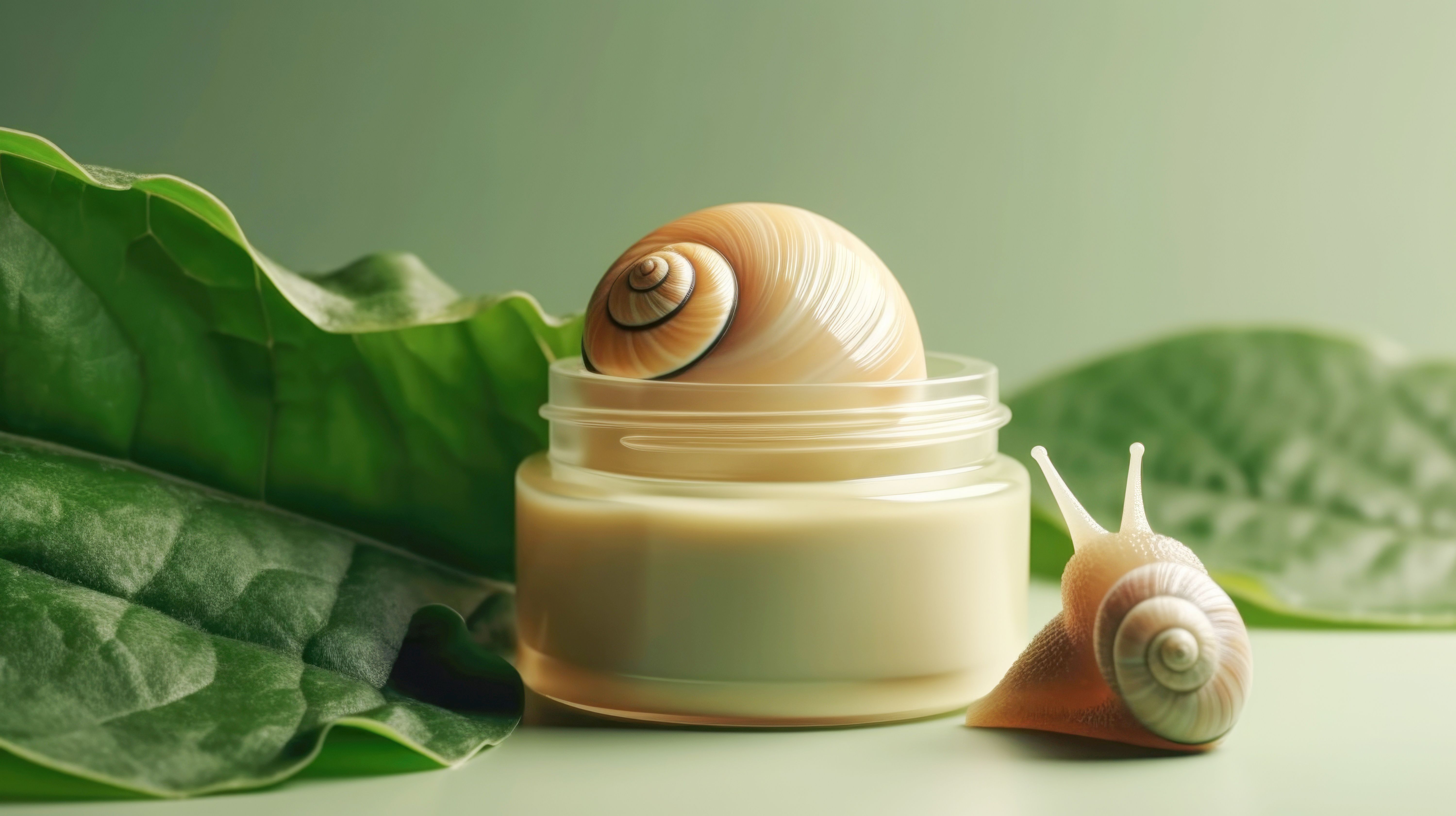- Case-Based Roundtable
- General Dermatology
- Eczema
- Chronic Hand Eczema
- Alopecia
- Aesthetics
- Vitiligo
- COVID-19
- Actinic Keratosis
- Precision Medicine and Biologics
- Rare Disease
- Wound Care
- Rosacea
- Psoriasis
- Psoriatic Arthritis
- Atopic Dermatitis
- Melasma
- NP and PA
- Skin Cancer
- Hidradenitis Suppurativa
- Drug Watch
- Pigmentary Disorders
- Acne
- Pediatric Dermatology
- Practice Management
- Prurigo Nodularis
- Buy-and-Bill
News
Article
Exploring Key Trends in Cosmeceuticals
Author(s):
Emmy Graber, MD, MBA, shared the truth behind cosmeceutical trends that patients may ask about from snail mucin to skin care refrigerators.
Cosmeceuticals, a term introduced by Albert Kligman,1 have become increasingly popular among consumers seeking products that can significantly impact their skin without the need for a prescription.
Emmy Graber, MD, MBA (Photo courtesy: The Dermatology Institute of Boston)

"Cosmeceuticals are products that can be bought online without a prescription at the drugstore that profoundly affect their skin. But from a regulatory standpoint, from the standpoint of the FDA cosmeceuticals are not drugs they are simply cosmetics, and nothing more,” said Emmy Graber, MD, MBA, to kick off her session “What’s New and Hot in Cosmeceuticals” at the 2024 Winter Clinical Hawaii Dermatology Conference.2
Graber, who founded the Dermatology Institute of Boston, provided valuable insights into what's hot and new in the realm of accessible skincare, drawing on her experiences with patients and cross-referencing information from McKinsey and Company's annual report, which utilizes AI-powered trend-spotting to spot top cosmeceutical trends on social media platforms.
The session covered a diverse range of cosmeceuticals, with Graber focusing on key trends that have emerged in the past year. Among the intriguing topics discussed were snail mucin, retinols, rosemary, mushrooms, niacinamide, antioxidants, sunscreen, and the trending 4 S's – slugging, skin cycling, skin edification, and skincare refrigerators.
Snail Mucin
One surprising revelation was the use of snail mucin, which has roots dating back to the 1980s when snail breeders in Chile noticed rejuvenated hands after handling snails. Graber presented evidence from a double-blinded study showing significant improvements in crow's feet and skin texture after using snail mucin-containing products.3
Graber said, “Snail mucin has been something in the cosmeceutical realm that I've been asked about so much in the last year or 2 from my patients. The study that I presented looked at patients applying both emulsion and a lotion. The emulsion was 8% snail mucin. The lotion was 40% snail mucin. So I think, since that's the data we have, I would advise patients if they're going to use it to try to find something that's at least 40% snail mucin. Now, that being said, with regards to the question as to how do you know that you're getting pure snail mucin—Well, you know, these are cosmeceuticals. They're not regulated by the FDA and you don't really know.”
Nature’s Retinols
Nature's retinols, such as bakuchiol derived from the Bakuchiol plant, were discussed as alternatives to traditional retinoids. A 12-week study revealed that bakuchiol and retinol significantly decreased wrinkles and hyperpigmentation, with bakuchiol causing less irritation.4
Rosemary
Rosemary, typically known for culinary uses, emerged as a potential solution for hair loss. A study demonstrated that rosemary application led to statistically significant hair growth in mice compared to water and minoxidil, highlighting its potential for human use.5
Mushrooms
Mushrooms, particularly the cauliflower mushroom containing verrucaria acid, were explored for their skincare benefits. Clinical studies showed improved skin roughness and smoothness in a 12-week trial, making mushrooms a promising ingredient for cosmetic formulations.6
Niacinamide
Niacinamide, though not new, has seen a surge in popularity, with a 4900% increase in search volume over the past 5 years. Graber discussed its multiple benefits, including reducing sebum production and increasing collagen, as demonstrated in a study involving patients with rosacea.7
Antioxidants
The importance of antioxidants in skincare, especially in combating visible light damage, was emphasized. Graber recommended encouraging patients to look for sunscreens containing antioxidants for enhanced protection.
Other Trends To Note
The session also touched on viral beauty trends like slugging and skin cycling, with Graber providing insights into their potential benefits and drawbacks.
"Slugging is a viral beauty trend often on Tik Tok that entails slathering a petrolatum-based ointment on the skin as the last step in the evening skincare routine," Graber explained. “It's really occlusive. It's not really hydrating the skin.It's just preventing transepidermal water loss...The problem is it can make the products that have been layered underneath it penetrate more deeply, and this could provide more irritation for the patients. Although it's non-comedogenic it can produce occlusive acne."
Skin cycling was a term coined on Tik Tok to indicate that certain products are applied on alternate days instead of every single day, especially for products that can be irritating with frequent use.
In the realm of skincare refrigerators, a growing trend among consumers, Graber consulted industry sources to clarify that while they may prolong the longevity of some over-the-counter products, prescription retinoids do not necessarily benefit from refrigeration.
References
- Pandey A, Jatana GK, Sonthalia S. Cosmeceuticals. In: StatPearls. Treasure Island (FL): StatPearls Publishing; August 7, 2023.
- Graber E. What'snew and hot in cosmeceuticals. Presented at: 2024 Winter Clinical Hawaii Dermatology Conference; January 12-17, 2024, Honolulu, HI.
- McDermott M, Cerullo AR, Parziale J, et al. Advancing discovery of snail mucins function and application. Front BioengBiotechnol. 2021;9:734023. Published 2021 Oct 11. doi:10.3389/fbioe.2021.734023
- Dhaliwal S, Rybak I, Ellis SR, et al. Prospective, randomized, double-blind assessment of topical bakuchiol and retinol for facial photoageing. Br J Dermatol. 2019;180(2):289-296. doi:10.1111/bjd.16918
- Begum A, S S, N AK, Ali SS. Evaluation of herbal hair lotion loaded with rosemary for possible hair growth in C57BL/6 mice. Adv Biomed Res.2023;12:60. Published 2023 Mar 21.doi:10.4103/abr.abr_306_21
- Lee KE, Park JE, Jung E, et al. A study of facial wrinkles improvement effect of veratric acid from cauliflower mushroom through photo-protective mechanisms against UVB irradiation. Arch Dermatol Res. 2016;308(3):183-192. doi:10.1007/s00403-016-1633-z
- Draelos ZD, Ertel K, Berge C. Niacinamide-containing facial moisturizer improves skin barrier and benefits subjects with rosacea. Cutis. 2005;76(2):135-141.







